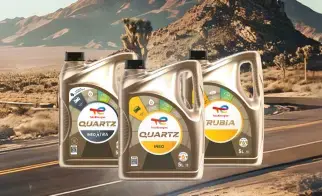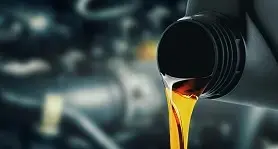Symptoms and solutions for engine corrosion and rust
If you operate vehicles or industrial equipment, chances are you will have encountered rust and corrosion. Impacting the performance of vehicles and machinery, increasing the risk of stoppages and ramping up maintenance costs, these two common issues can wreak havoc on equipment, but what exactly are they, what particular problems do they cause and how can they be safeguarded against?
What are corrosion and rust?
Corrosion and rust are similar, but separate, terms. Corrosion covers a wide range of processes whereby materials deteriorate via a chemical reaction, and includes:

- Rusting, where iron oxide (rust) is produced following the oxidation of iron, steel or a similar alloy.
- Microbial corrosion, whereby a material is broken down by the chemicals produced by microorganisms, such as hydrogen sulphide.
- Galvanic corrosion, caused when different metals are in contact with one another next to an electrolyte.
- Crevice corrosion, which occurs in small spaces like flanges, gaskets and seals and is caused by the continued presence of an electrolyte or solution. This type of corrosion can be made worse by the presence of deposits.
- High-temperature corrosion, a type of rust brought on by the presence of extreme heat capable of starting oxidisation.
What engine problems are caused by rust and corrosion?
Engine rust and corrosion cause two main problems: component failure and issues caused by the contaminants – deposits – produced when corrosion takes place.
Component failure occurs when components have become so degraded through corrosion that they fail and must be replaced. Fortunately, component failure due to corrosion is unlikely to appear out of the blue, as contaminants and the deposits formed from them will affect engine systems long before – a warning sign to equipment and vehicle owners.
Contaminants produced by corroding metal components can affect a huge range of engine systems, particularly when deposits mix with oil to form sludge:
- Blocked fuel and oil filters
- Less effective fuel pumps
- Reduced combustion efficiency
- Lower overall volume of oil, leading to reduced lubrication
- More strain on engine parts
- Reduced cooling
- Reduced oil and component service lives.
How to protect engines from corrosion and rust
Corrosion can be safeguarded against with the use of high-performance engine lubricants.
Specialist oil formulations coat engines in a protective varnish of oil that reduces wear and friction, lowers the temperature of the engine, and keeps engine components clean, stopping deposit and sludge formation. All these benefits combine to prevent corrosion from causing costly, time-consuming downtime.
TotalEnergies’ lubricant range
TotalEnergies offer a wide range of lubricants and oils designed to prevent corrosion and rust and flush out contaminants if corrosion takes place. View our engine oils for vehicles or industrial lubricants range for more information.
TotalEnergies ANAC oil analysis
It’s always a good idea to analyse your oil when you change it so you can find out whether parts of your engine are corroding. To support this, we developed ANAC, an oil analysis service that offers fast, early detection of engine problems by comparing oil samples with millions of existing analyses. Reducing fleet costs, helping plan maintenance schedules and lengthening engine lifespans, it’s helps fleets operate more efficiently.



